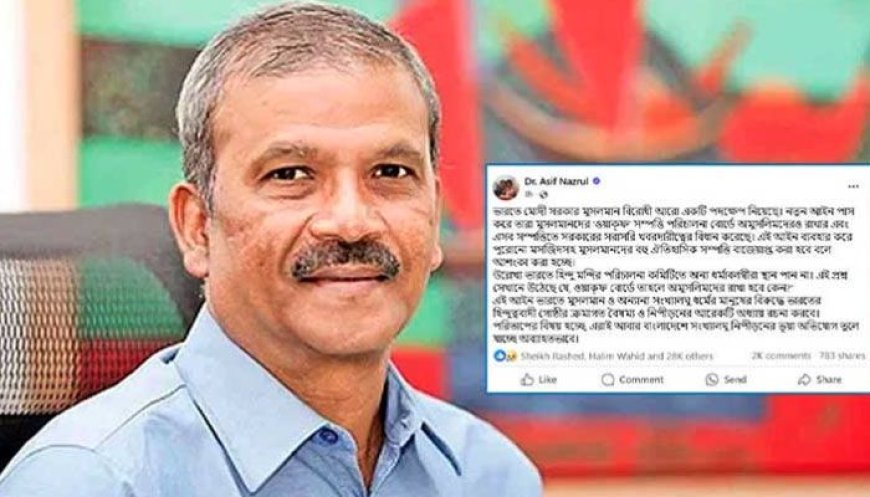Waqf Wrangle: Asif Nazrul Slams Modi Government's ‘Anti-Muslim’ Move

The Modi government in India has taken yet another “anti-Muslim” step by passing a controversial amendment to the Waqf Act, prompting widespread criticism and protests across the country. Highlighting the move, Dr. Asif Nazrul, Adviser to the Ministry of Law, Justice and Parliamentary Affairs in Bangladesh, accused the Indian government of targeting its Muslim population while falsely accusing Bangladesh of minority oppression.
In a verified Facebook post on Sunday morning (April 6), Asif Nazrul wrote, "The Modi government has taken another anti-Muslim step. A new law has been passed allowing non-Muslims to be included in the Waqf property management boards, and granting the government direct control over such properties. There is fear that this law will be used to seize many historical Muslim properties, including old mosques."
He further noted, "In India, no members of other faiths are included in Hindu temple management committees. The question has arisen: why, then, are non-Muslims being included in Waqf Boards?"
Describing the law as part of an ongoing campaign of “discrimination and oppression” against Muslims and other religious minorities by Hindu nationalist forces in India, Asif Nazrul remarked that it marks yet another chapter in India's divisive policies.
He expressed deep concern over the double standards, stating, "These are the same people who continue to spread false allegations about minority oppression in Bangladesh."
The Waqf Amendment Bill sparked nationwide controversy in India soon after it was tabled. Following intense debates, it was passed in the Indian Parliament late on Wednesday (April 2), with 288 Members of Parliament voting in favor and 232 against. The bill now awaits presidential assent to become law.
The move has drawn the ire of Muslim communities throughout India. Protests erupted on Friday (April 4) in Kolkata and across West Bengal, with demonstrators burning effigies and denouncing what they call “interference in religious properties.”
Several organizations, including the Joint Forum for Waqf Protection, and political groups such as the All India Majlis-e-Ittehad-ul-Muslimeen (AIMIM), have taken to the streets. In Chennai, the protest was joined by supporters of Tamil actor Vijay’s political outfit, Tamilaga Vettri Kazhagam.
As protests gain momentum, the debate around religious autonomy and minority rights in India continues to intensify.








































































































































































































